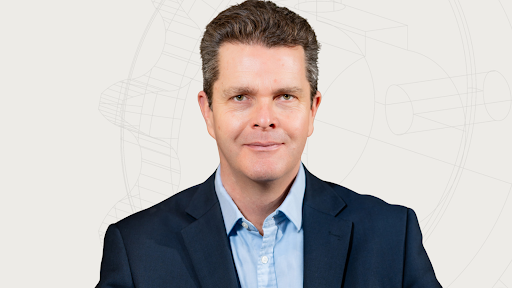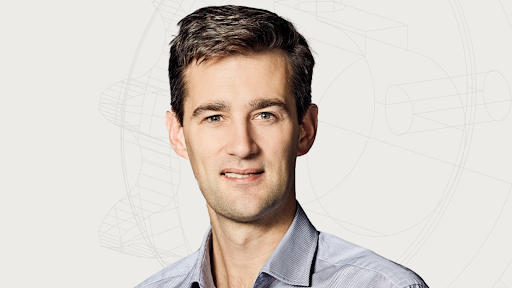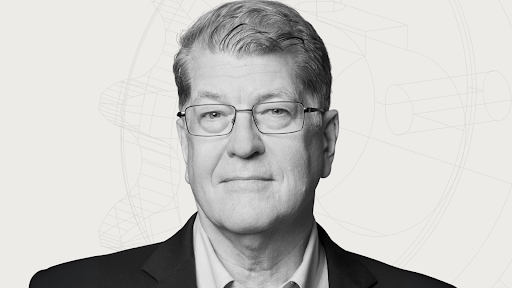.png)
In this Telescope LENS Q&A, we talk with Chris Massey, founder and CEO of The Brds Nst. Drawing from his diverse experience across government and private sector, Chris shares insights on demystifying government for entrepreneurs, the transformative potential of AI across healthcare and elder care, and how innovation can serve both security and prosperity when we all "row in the same direction."
Tell me a little bit about what your day-to-day work looks like and how that ties into Telescope?
Day-to-day at The Brds Nst is assisting founders and their teams on really how to strategically navigate the government from a broad perspective. So it can range from state and local policymaking to federal policymaking and regulatory affairs. Really the focus here is to demystify government for early stage founders, late stage and growth stage founders, and even public sector entities and NGOs.
In so many ways, government can be a mystery and a bit of a scary entity. And really what I'm trying to do is use the breadth of my experience to really make that connection a lot easier.
Is there an idea you've come across recently that made you think: this could change things for the better?
There are a lot of really good ideas out there right now. Norm AI is a standout in what they're doing to change the game for regulatory compliance with generative AI. Companies like Canberra are powering the autism provider community in really interesting ways, ultimately creating better experiences for families.
Something that I really believe in is how AI can change the face of industries like healthcare. If we can deploy AI solutions to take into account the everyday struggles of Americans and find the connections to deliver solutions that go to the root of those struggles, we can make a real impact in mental and physical health. One that's really important to me is elder care. I've recently had a lot of experience in trying to manage this and not knowing exactly what I'm doing. If we can utilize AI in interesting ways that can help families navigate this, that can be really impactful in the long run.
How can we do a better job of finding and lifting up emerging or nontraditional talent?
I think the biggest risk is that we're not all educated enough on what the potential threats can be. There is a huge risk in not innovating because if we don't allow for a certain level of innovation, that's not going to stop the folks that are really threatening our economy and our way of life from innovating themselves.
The one thing that regulators and policymakers can do is to have a better sense of what it's like to build some of these solutions. There's an opportunity for governments to start sandboxing more solutions and adopting the spirit of hackathons that we've seen in the tech industry for years. We should really understand where the technology can go and start looking at it from a positive perspective.
Is there someone whose work has inspired you recently in advancing security and prosperity?
The person that I always look to most is my grandfather who was a pioneer in law enforcement in California. He was the first Black California Highway Patrolman and encountered extraordinary racism, but got through that and was able to have the right attitude. That's my level set for how I look at anything that's being built.
In terms of business leaders, that's David Sacks. I've worked with David very closely over the course of the last decade. I know him as someone who is highly ethical, is driven to make America the long-term innovation leader, and has been focused on giving opportunities to dreamers that are envisioning new products and platforms that can drive further innovation.
As you look ahead, what gives you the most hope?
The thing that gives me the most hope is that we actually are empowered with a lot more information than we've ever been empowered with. My 11-year-old is going to be able to go through school with all the information that's possible in order to be prepared for pretty much anything. And if you can find a way to pair that with some emotional intelligence, that can be an extraordinary power.
How I would get all of these innovations pulled together to row in the same direction is to show that we have so much more in common than what divides us. I think we can all agree that there's hope and optimism and that we should lean into that because that's gonna drive the innovation and the adoption of the innovation going forward.



.png)
In this Telescope LENS Q&A, we talk with David Winickoff, Head of the Responsible Innovation Unit at the Organization for Economic Cooperation and Development (OECD). From his perspective bridging academic expertise with international policy development, David shares insights on how to realize the enormous potential of emerging technologies while managing risks—and why anticipating technological change, rather than reacting to it, is key to building a better future.
.png)
In this Telescope LENS Q&A, we talk with Dr. Rumman Chowdhury, CEO and founder of Humane Intelligence Public Benefit Corporation and co-founder of the nonprofit Humane Intelligence. From her perspective as both a social scientist and AI ethics pioneer, Rumman shares insights on bridging the gap between technology development and what people actually want to see in the world—and how everyday voices can shape the AI systems being built around us.
.png)
In this Telescope LENS Q&A, we talk with Erika Staël von Holstein, Co-Founder and Chief Executive of Re-Imagine Europa. Drawing from her expertise in neuroscience and narrative strategy, Erika shares insights on how our thinking patterns shape reality, why we need to listen to those we disagree with, and how AI can help us build wiser technology by understanding the limits of our own narratives.
.png)
In this Telescope LENS Q&A, we talk with Michelle Giuda, CEO of the Krach Institute for Tech Diplomacy at Purdue University. From her perspective as both a former student athlete and a leader in global technology policy, Michelle shares insights on how the United States and its allies can deliberately shape a future of freedom, prosperity, and security, powered by trusted technology and new models of collaboration.
.png)
In this Telescope LENS Q&A, we talk with Kristen Edgreen Kaufman, Senior Vice President of Global Impact Initiatives at the U.S. Council for International Business (USCIB). With extensive experience bridging global public policy and private sector interests, Kristen shares insights on fostering innovation ecosystems, building coalitions across political divides, and ensuring American competitiveness in emerging technologies.
.png)
In this Telescope LENS Q&A, we talk with Chris Massey, founder and CEO of The Brds Nst. Drawing from his diverse experience across government and private sector, Chris shares insights on demystifying government for entrepreneurs, the transformative potential of AI across healthcare and elder care, and how innovation can serve both security and prosperity when we all "row in the same direction."
.png)
In this Telescope LENS Q&A, we talk with Heather Panton, General Counsel at Labrys Technologies. A former national security lawyer in the UK government who transitioned to the startup space two years ago, Heather shares insights on building compliance into innovation from the ground up, bridging the gap between private sector innovation and government needs, and creating technology that serves the public good.


